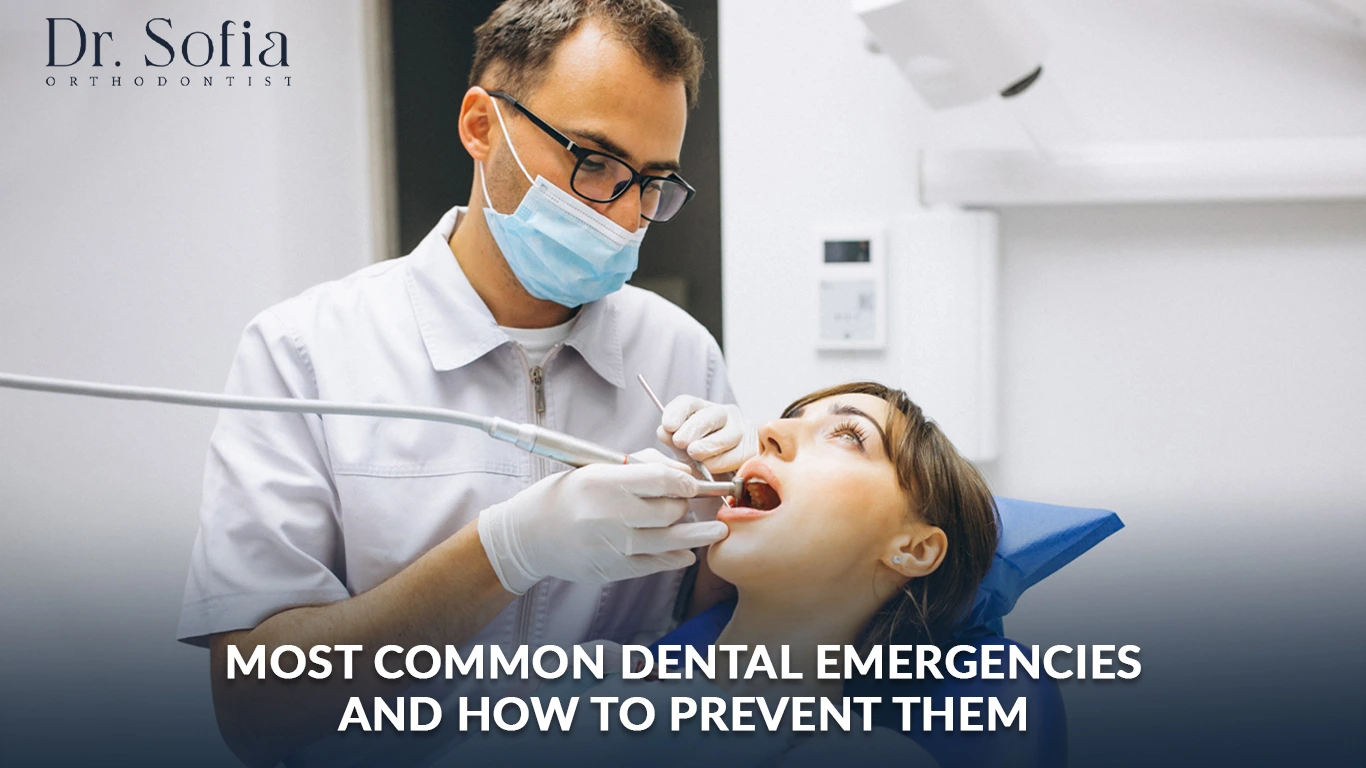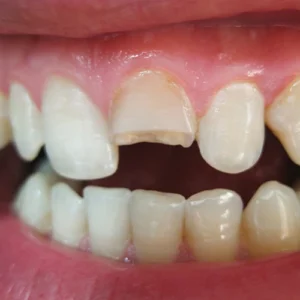


Authored by: Dr.Sofia Hawelia (orthodontist)
The first thing that people notice about you is your beautiful smile. Everyone takes their smile for granted. But as soon as something is wrong, attention only goes towards it.
Dental emergencies may arrive at any moment, such as a sudden toothache or a knocked-out tooth during a game.
This blog will help you explore issues that may arise, the most common ones people face and a few simple steps that can be taken to manage and prevent them.
A dental emergency is any oral condition that needs immediate action to stop bleeding, to relieve chronic pain and save a tooth. Conditions such as uncontrolled bleeding right after tooth extraction, or a tooth being completely avulsed, or a crown that suddenly becomes loose, all qualify as dental emergencies.
After this, the next step is to act quickly because delaying the care might turn it into an untreatable issue, a more serious one. Thus, knowing the urgency and acting on it immediately and appropriately can mean the difference between saving or losing a tooth.
Here are the four most frequent types of dental emergencies that people may encounter. For each of them, there is also detailed advice on tips on how to manage the emergency and prevent it from happening again.
When a tooth gets completely knocked out, each second is counted to save it.
In such cases, it becomes important to manage dental emergencies effectively.
How to Manage:
How to Prevent:
A crown or a lost filling leaves a tooth exposed to several kinds of bacteria, temperature changes and pressure from biting.
How to Manage:
How to Prevent:
A fracture or a crack causes a sharp pain when the temperature changes or even while biting.

How to Manage:
How to Prevent:
To avoid permanent damage because of dental emergencies, a tooth that feels loose after any kind of trauma needs immediate stabilisation.
How to Manage:
How to Prevent:
It is recommended not to ignore your dental pain and always trust the expert for the same. Dr. Sofia can solve your problem by identifying weakened fillings, early decay, or orthodontic issues during routine visits.
We know cravings can be difficult to handle, but they directly damage our gums. Hard candies, ice, popcorn kernels, and sticky sweets should be avoided as they can crack your teeth and damage your braces, leading to sudden pain and emergency visits.
We often do not realise the damage we cause to our teeth by simply opening packages, soda cans, or cracking nutshells with our teeth. They can cause fractures and chips. It’s recommended to always use appropriate tools instead of risking dental damage.
For patients using braces or aligners, it is advisable to strictly adhere to expert opinion and be consistent with the appointments so that the treatment goes as per schedule and shows visible results
In case of any dental emergency, Dr Sofia should be your go-to trusted Dentist in Kolkata. She ensures same-day appointments, prioritises emergencies and makes sure her clients feel a sense of comfort during any situation, right from toothaches, broken teeth, to fillings and braces as well.
As we all know, emergencies don’t give you a prior intimation before occurring and hence it becomes difficult to trust someone, especially when it comes to your smile. Right orthodontic treatments and soft tissue injuries, everything is taken care of at Dr Sofia’s clinic. She believes in providing quick relief, preventing complications and works towards preserving your overall oral health. Remember, recognising these emergencies early on can make a difference in their treatment, as we only recommend experts when it comes to your smile.
It is recommended that you rinse your mouth with warm saltwater, take over-the-counter pain relievers (except aspirin if there is bleeding) and apply a cold compress, seek professional advice, and call our office to schedule an emergency appointment with Dr. Sofia.
Any broken tooth with sharp edges, significant pain, or exposure of the inner layers requires emergency attention. Even little cracks ought to be examined promptly, or they might spread.
Absolutely. Dr. Sofia provides emergency dental care for patients irrespective of their age criteria, including specialised care for children with dental injuries or pain. If your little one is suffering from severe tooth pain, take him to Dr. Sofia for immediate relief and care.
